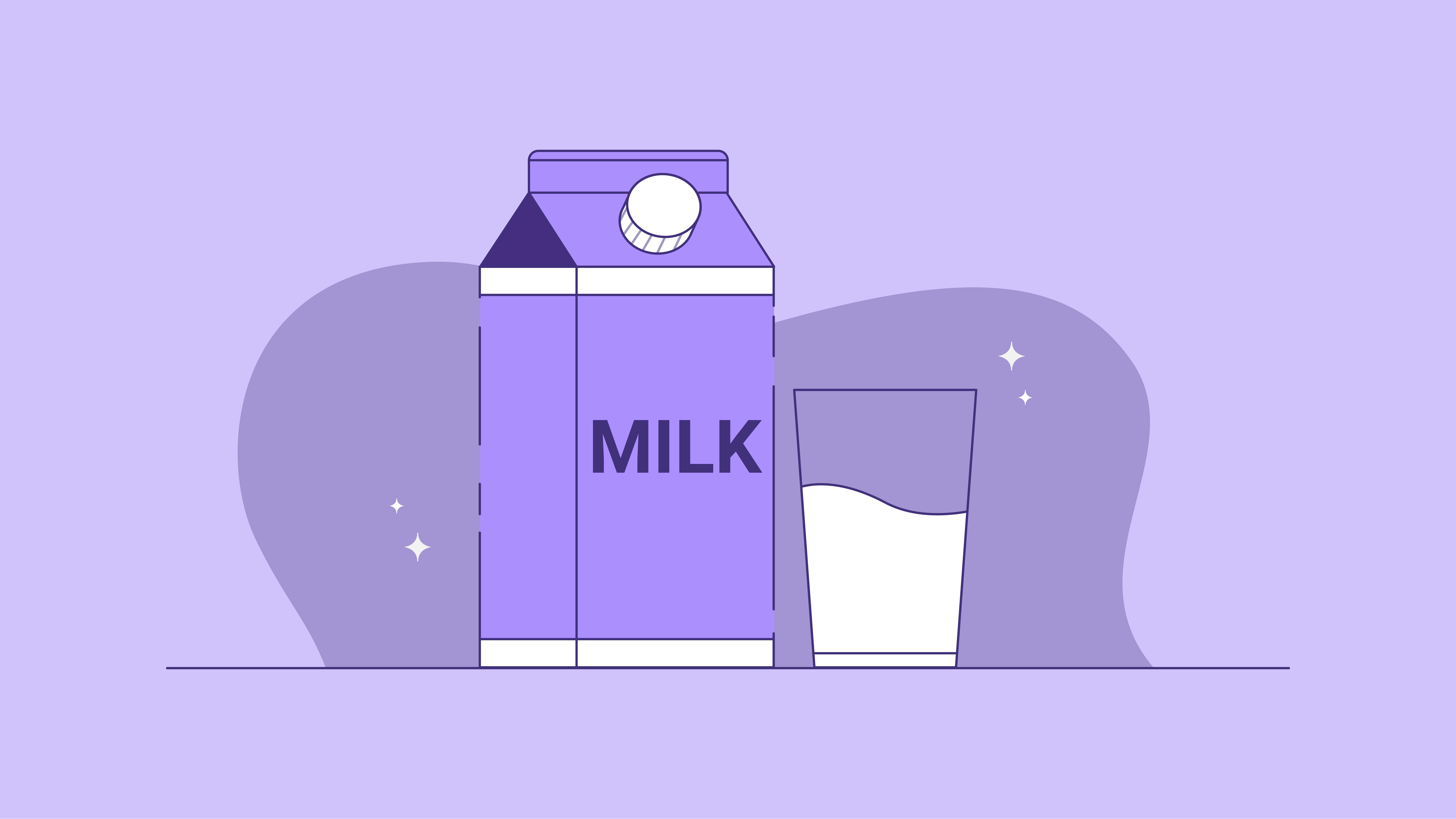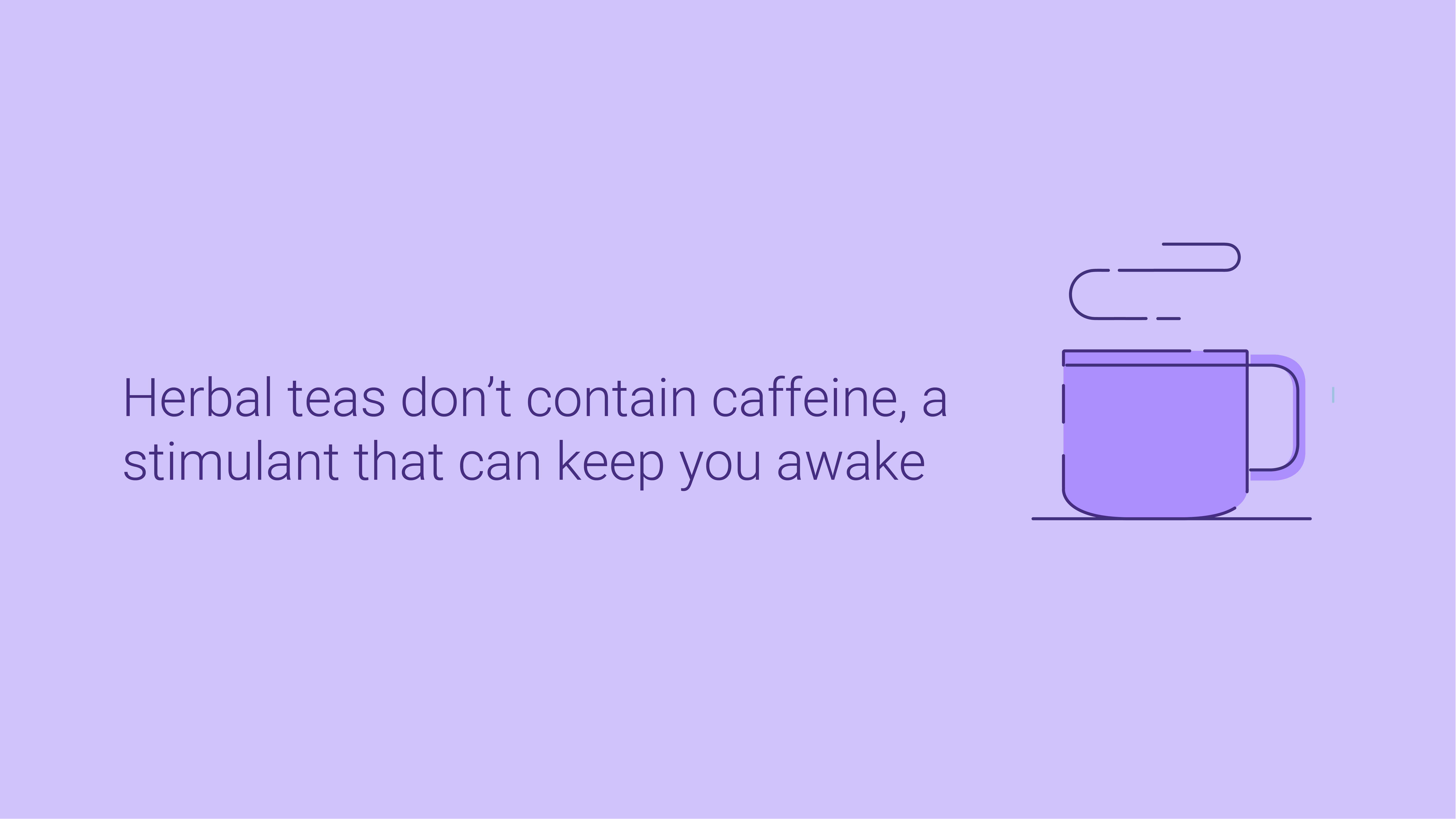
Will Drinking Warm Milk Make You Go to Sleep?
- While there is no scientific evidence to support the idea that milk specifically aids sleep, it contains components such as melatonin, tryptophan, and magnesium, which contribute to relaxation and the promotion of sleep.
- The temperature of milk does not affect its sleep-inducing properties, but the process of consuming warm milk before bed can psychologically prepare the body for sleep.
- Apart from milk, other sleep-inducing beverages include almond or coconut milk, herbal teas, and tart cherry juice, while it is advisable to avoid sugary and caffeinated drinks close to bedtime to ensure a restful sleep.
You may have heard a glass of warm milk before bed can help you sleep, but milk is not the only drink to help you sleep or the only remedy for insomnia.
In our article, we take a look at how milk can help you sleep, if milk temperature matters, and other sleep-inducing drinks that are just as effective as milk. We also warn against beverages that can disrupt your sleep.
How Can Milk Help Me Sleep?
Drinking warm milk before bed has been a traditional sleep remedy for centuries—no one knows when this practice first began. While there is no scientific evidence to show milk can improve sleep, milk does contain sleep-promoting components, like melatonin, tryptophan, and magnesium. These aspects help the body relax and slow down nerve activity.
Melatonin
Milk is rich in melatonin, a hormone that regulates the circadian rhythm—melatonin levels are highest at night and lowest during the day. Melatonin slows activity inside the body by calming nerves and relaxing muscles.
L-Tryptophan
Tryptophan is an essential amino acid for sleep. The body can’t produce tryptophan, so you can only get it through consuming foods and drinks which contain tryptophan, like milk. Tryptophan can’t cross the blood-brain barrier without a carrier protein, which is also found in milk. Once tryptophan reaches the brain, it helps produce serotonin, a neurotransmitter that slows down messages to nerve cells, promoting relaxation.
Magnesium
Magnesium is a mineral that relaxes tense muscles and maintains GABA neurotransmitter levels. GABA slows down nerve activity by blocking nerve impulses and reduces restlessness.
One study found magnesium deficiency is linked to poor sleep. Researchers found that participants who took a magnesium supplement before bed were able to sleep better.
Does Temperature Matter?
It doesn’t matter if you drink a cup of warm or cold milk—you still get the same sleep-promoting components. However, lots of people prefer warm milk because it makes them think of sleep and it’s more relaxing.
- Many people associate warm drinks with relaxation (i.e., drinking tea or coffee).
- The routine of making warm milk before bed subconsciously prepares your body for sleep.
- Preparing warm milk is a simple and relaxing process and may increase melatonin levels.
Other Sleep-Inducing Drinks
Milk is not the only sleep-inducing drink—other beverages include almond or coconut milk, herbal teas, and tart cherry juice. These other drinks also contain elements to help you sleep, including melatonin and tryptophan.

Almond or Coconut Milk
Almond milk or coconut milk are great substitutes for those who can’t have dairy products. Almonds are an excellent source of tryptophan, but in milk form, almond milk also provides magnesium.
Coconut milk is another excellent source of magnesium. Mixing turmeric into a glass of coconut milk also reduces inflammation and pain, improving sleep quality.
Herbal Tea
A cup of warm herbal tea is an excellent way to unwind after a stressful day. Herbal teas don’t contain caffeine, a stimulant that can keep you awake. Some herbal blends are designed to promote sleep, like chamomile or lavender, popular teas for bedtime. Special herbs help you relax by reducing stress and soothing muscles.
Tart Cherry Juice
Tart cherries are rich in melatonin, so drinking a glass of tart cherry juice can help you relax and calm your nerves. Tart cherry juice doesn’t contain sweeteners, so your blood sugar won’t increase, something that can cause alertness instead of sleepiness.
Drinks to Avoid
Some drinks make it harder to fall asleep, including sugary drinks and caffeinated beverages. These drinks are best enjoyed earlier in the day, so you can fall asleep easily instead of tossing and turning when it’s time for bed.
Sugary Drinks
Sodas and artificial juices are loaded with sugar, which can affect your ability to stay asleep. Sugary drinks raise blood sugar levels and give you energy, something you don’t need when you’re preparing for sleep. Sugar decreases magnesium—without magnesium, your muscles may tense up and cause you to feel anxious.
Caffeinated Drinks
Avoid consuming any beverage with caffeine, including soda, energy drinks, and coffee after 3 pm. Caffeine can stay in the bloodstream for up to 5 hours after consumption, so drinking caffeinated beverages could make it difficult to fall asleep.
Also, while it may be tempting, don’t drink chocolate milk at night. Chocolate contains a small amount of caffeine, which affects sleep quality.
FAQs
How long does it take for warm milk to make you sleepy?
It could take 10 to 20 minutes after drinking a glass of warm milk before you start to feel sleepy. Tryptophan travels to the brain and promotes melatonin and serotonin production, while magnesium relaxes tense muscles. We don’t recommend pairing your milk with a treat before bed since the extra sugar can keep you awake.
Does drinking milk at night cause weight gain?
We recommend avoiding late-night snacking so you can sleep better and prevent unnecessary weight gain. However, specific foods, like milk, digest easily and may promote sleep. Plus, drinking milk doesn’t add enough calories or fat to be concerning (you’d have to drink a lot before bed for it to become an issue).
What foods make you sleepy?
Some of the best snacks to help you sleep include bananas, dark leafy greens, nuts, cheese with crackers, and fruit with yogurt. Other foods like salmon, rice, and turkey won’t aggravate your digestive system and contain tryptophan, vitamin B6, magnesium, and melatonin.
How can I sleep better?
The best way to get a good night’s sleep is to establish healthy sleep habits. Setting and following a regular sleep and wake time gets your body into a natural rhythm. Turn off your electronic devices an hour before bed to avoid blue light exposure, which can delay melatonin release. Another good sleep hygiene tip is to keep the bedroom dark and cool. Any exposure to light can disrupt sleep, and a cool environment keeps the body comfortable.
Is it bad to go to bed hungry?
While we discourage late-night snacking, it’s not a good idea to go to bed hungry. Hunger pains can keep you awake, so try to eat dinner at least 3 hours before sleep. If you get hungry close to bedtime, snack on sleep-promoting foods, like peanut butter on toast, mixed nuts, and raw veggies with hummus. These foods satisfy hunger, but won’t interfere with sleep.
Conclusion
While there’s no scientific evidence to prove milk improves sleep, it does contain sleep-promoting magnesium and tryptophan. If you can’t consume dairy, other alternative “sleepy drinks” include herbal tea and tart cherry juice.
To fully enjoy a good night’s rest each night, you may need to take extra steps beyond drinking a glass of warm milk. These steps include exercise, diet, and practicing healthy sleep hygiene. If you still struggle with sleep, the problem could be your mattress—if you frequently wake up feeling sore, it might be time to replace the bed.
